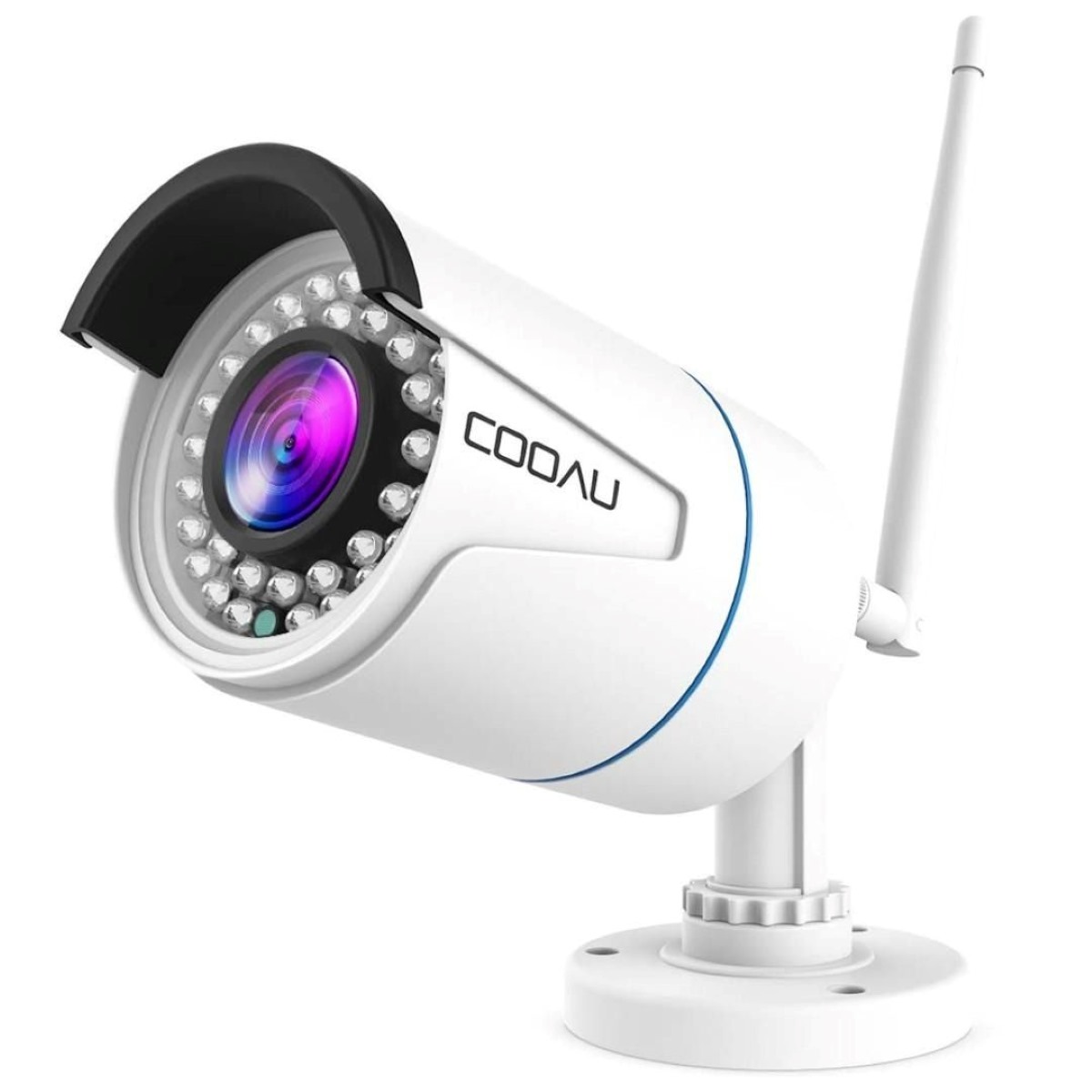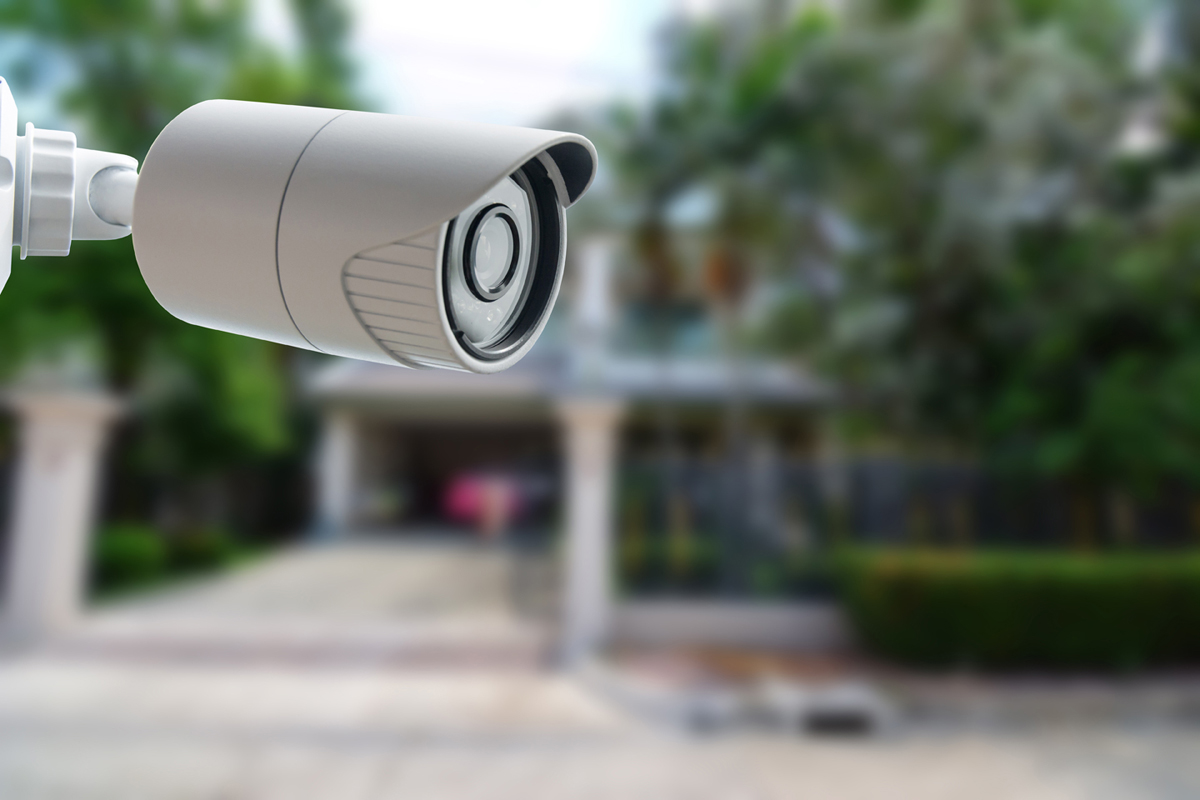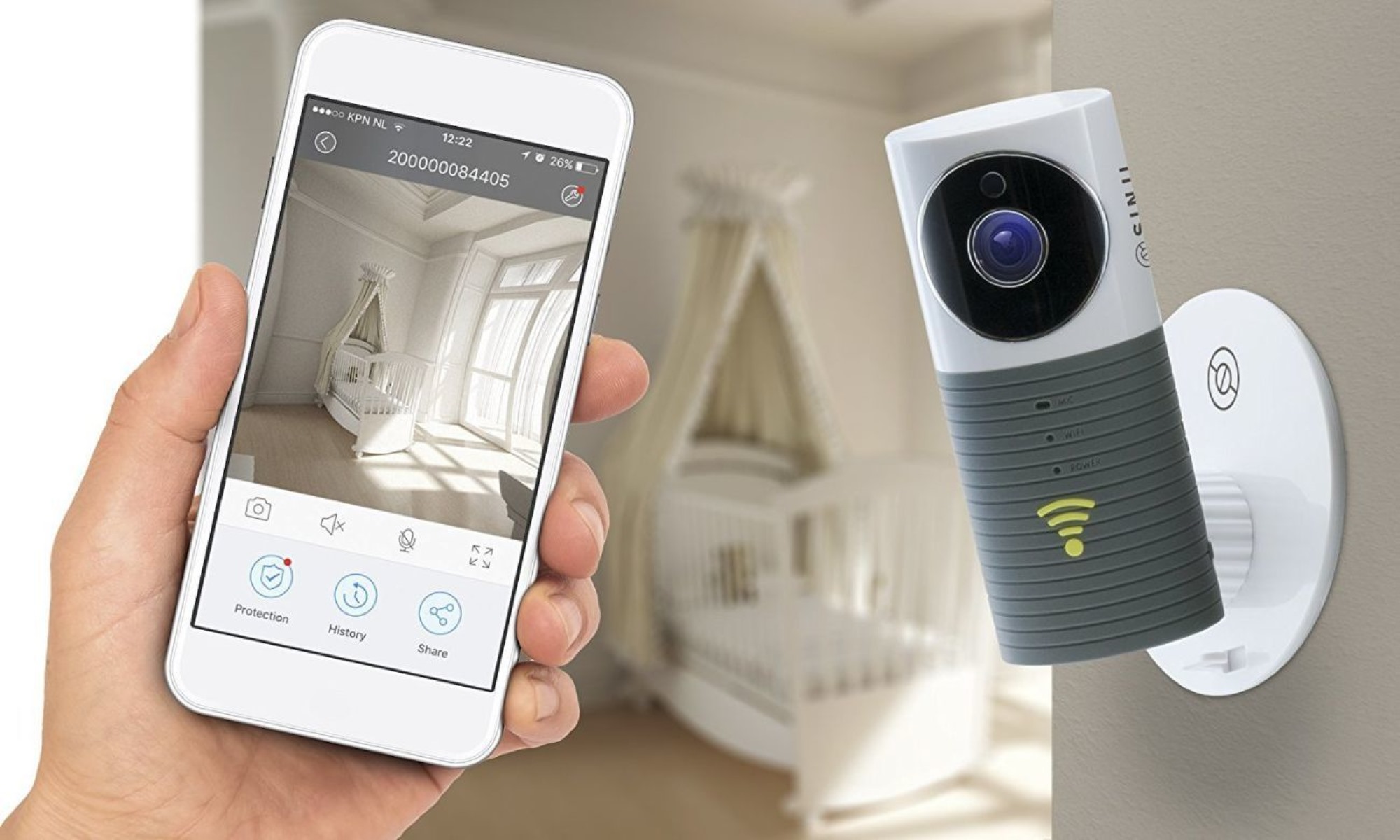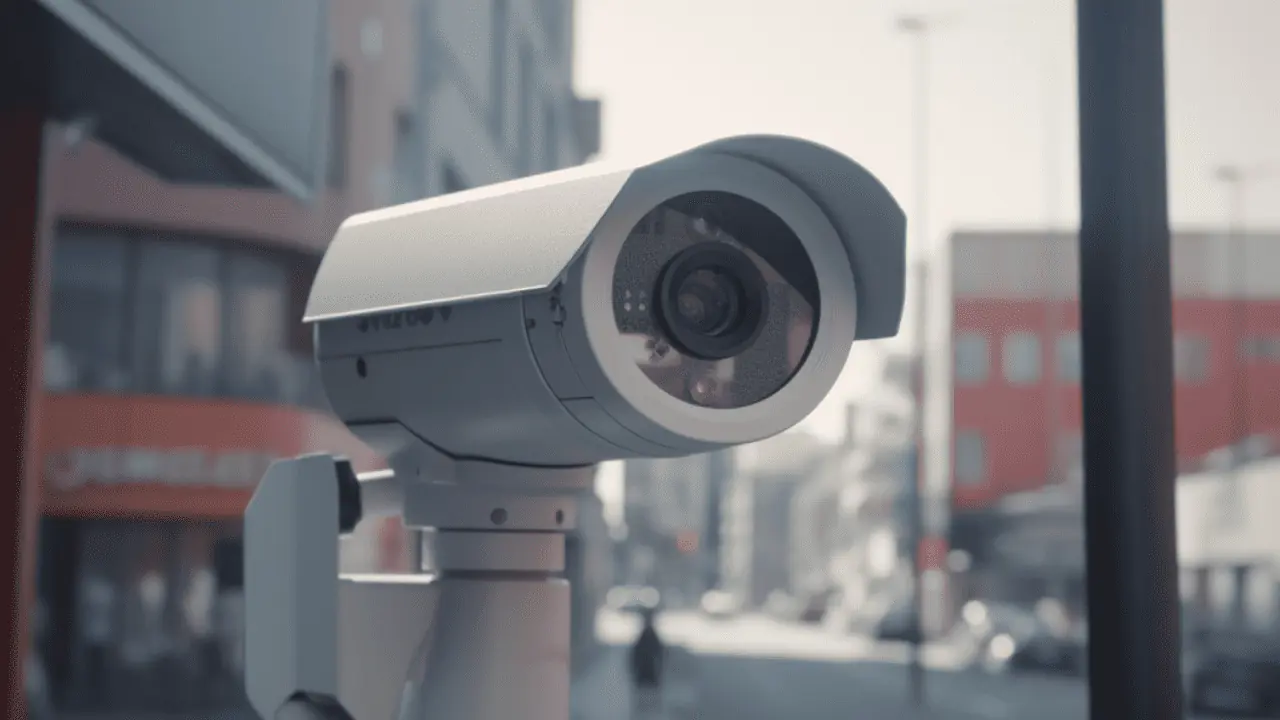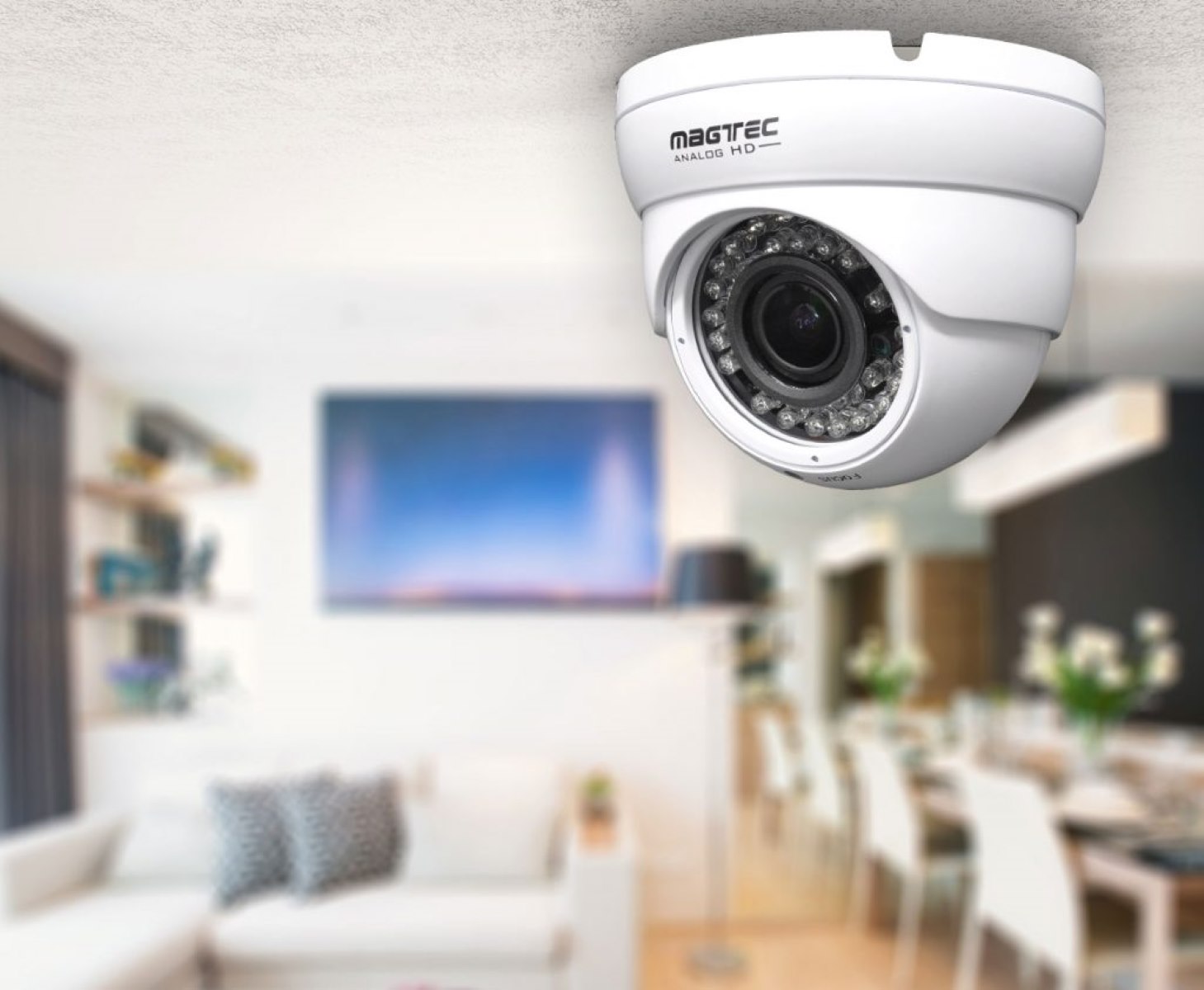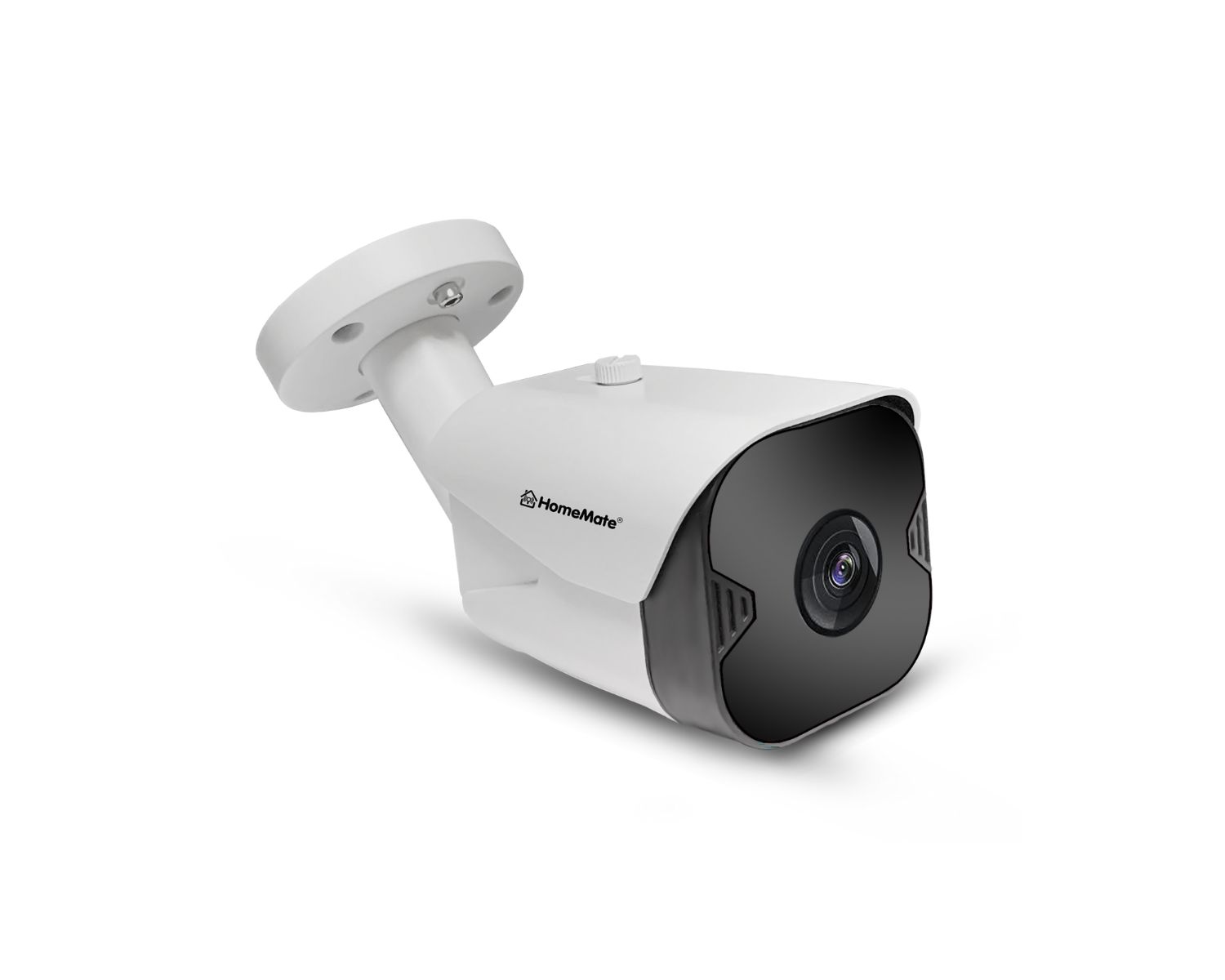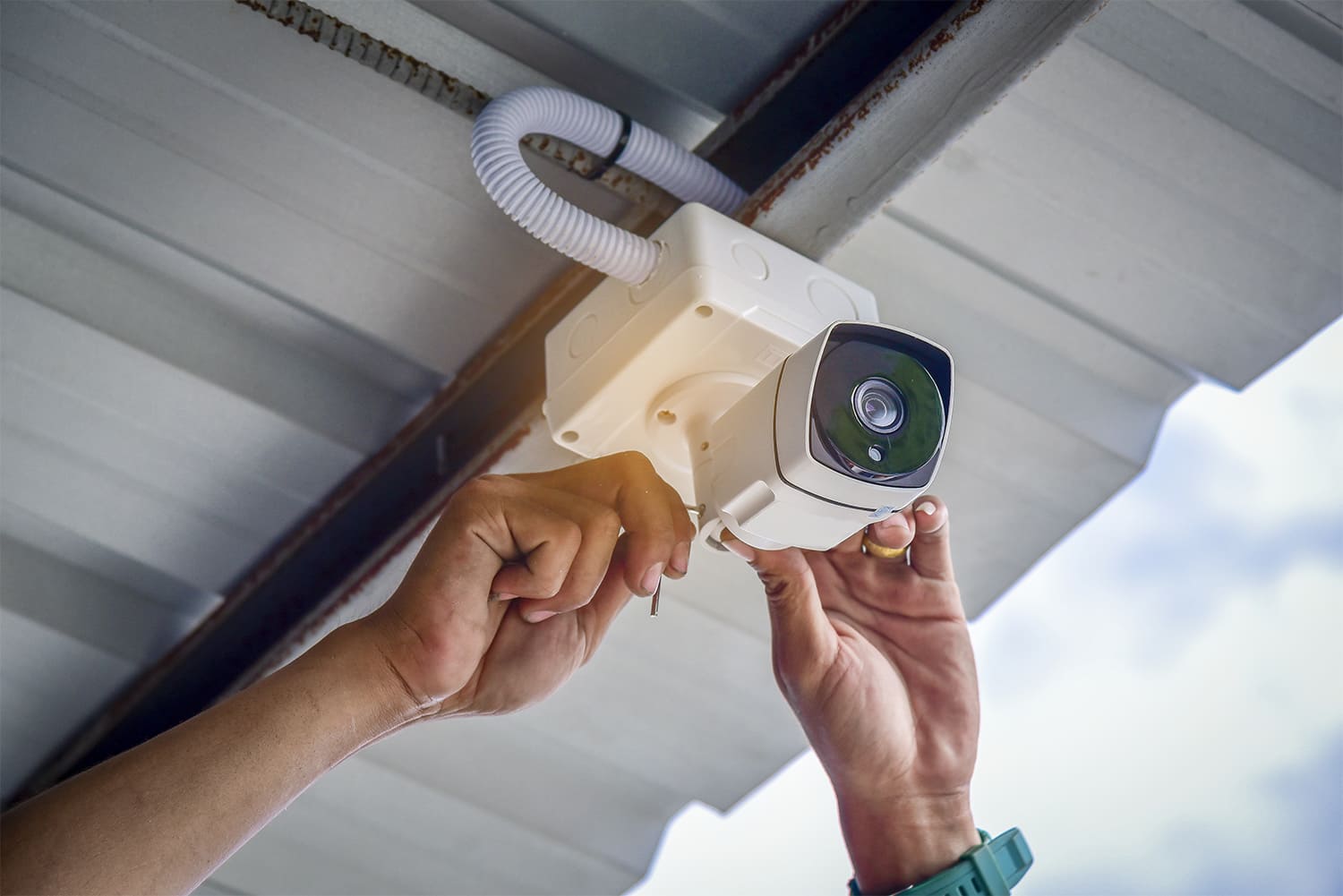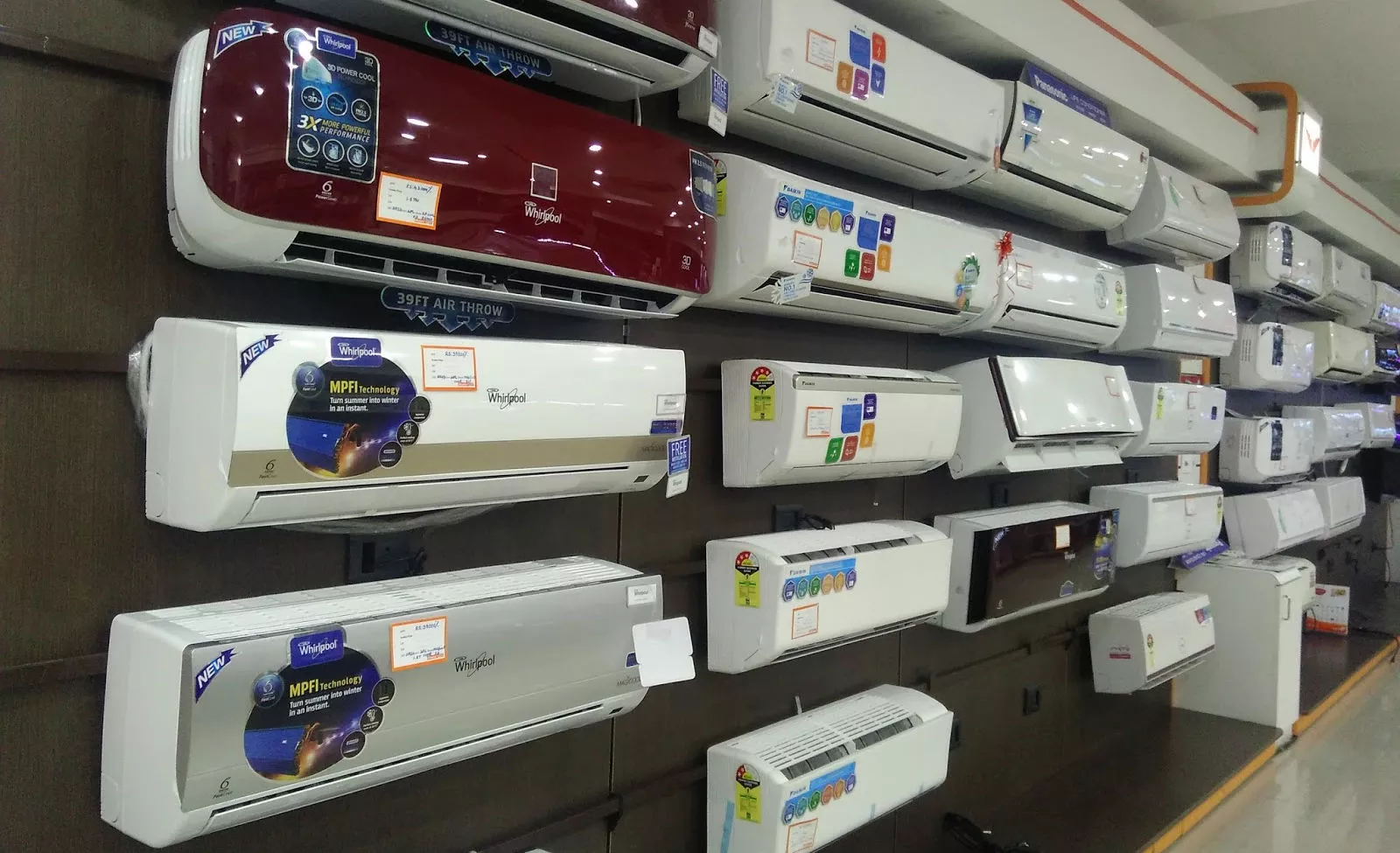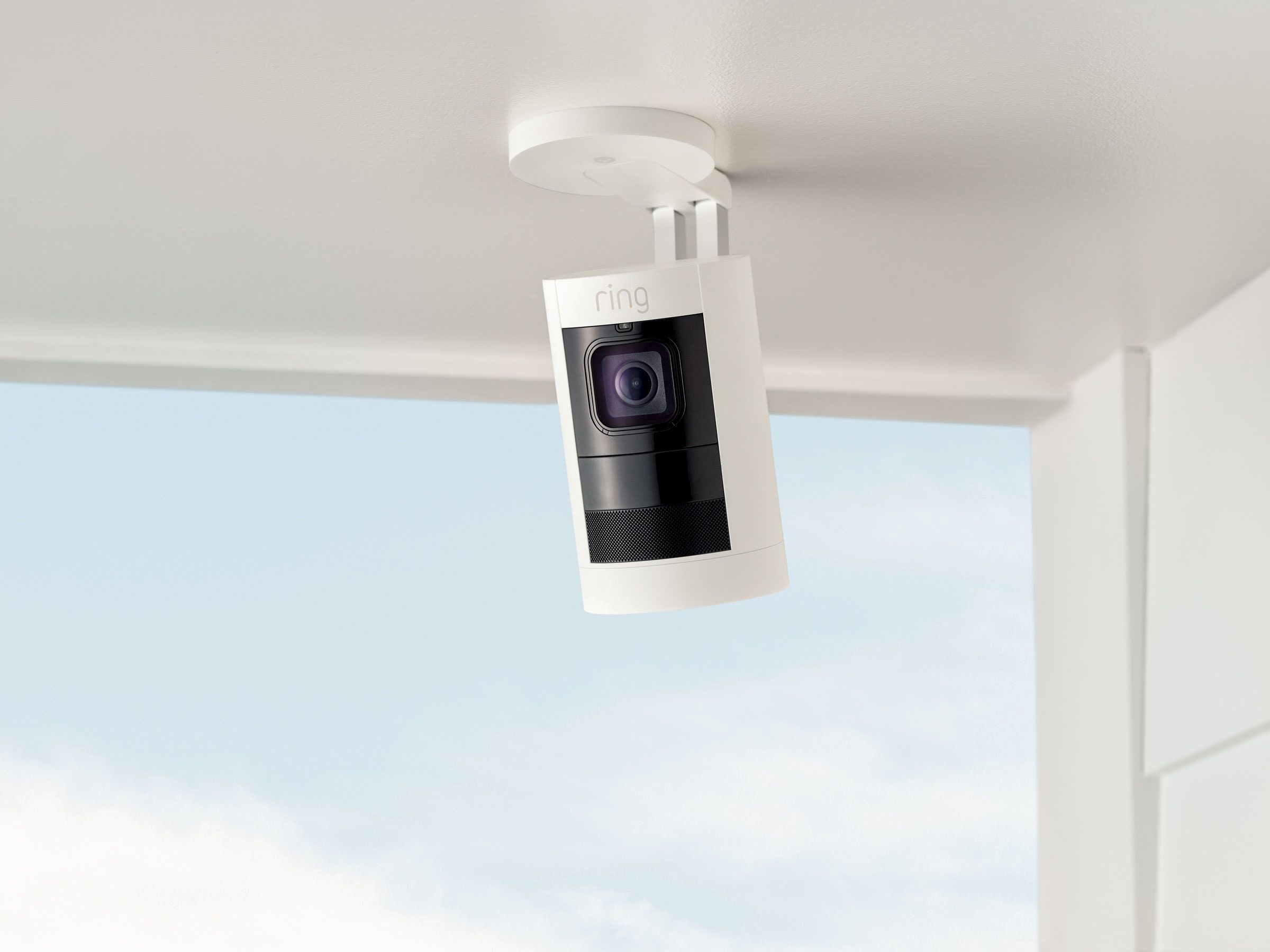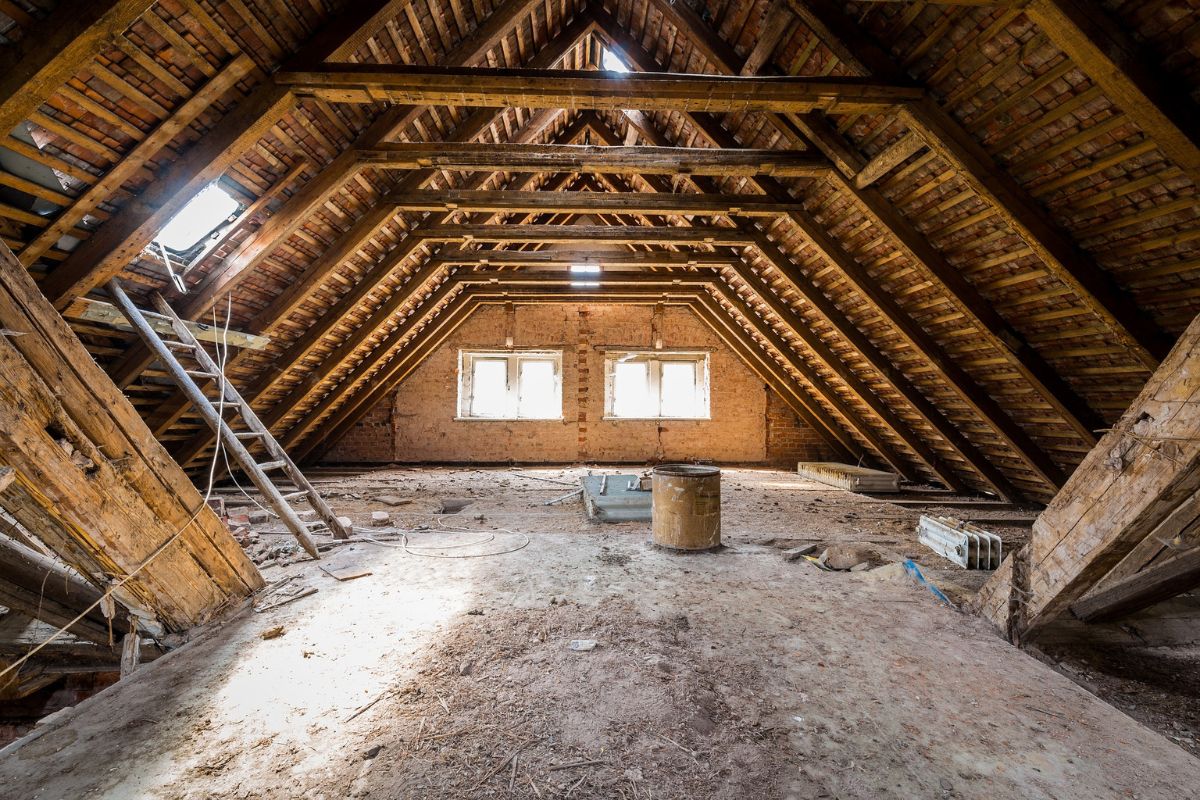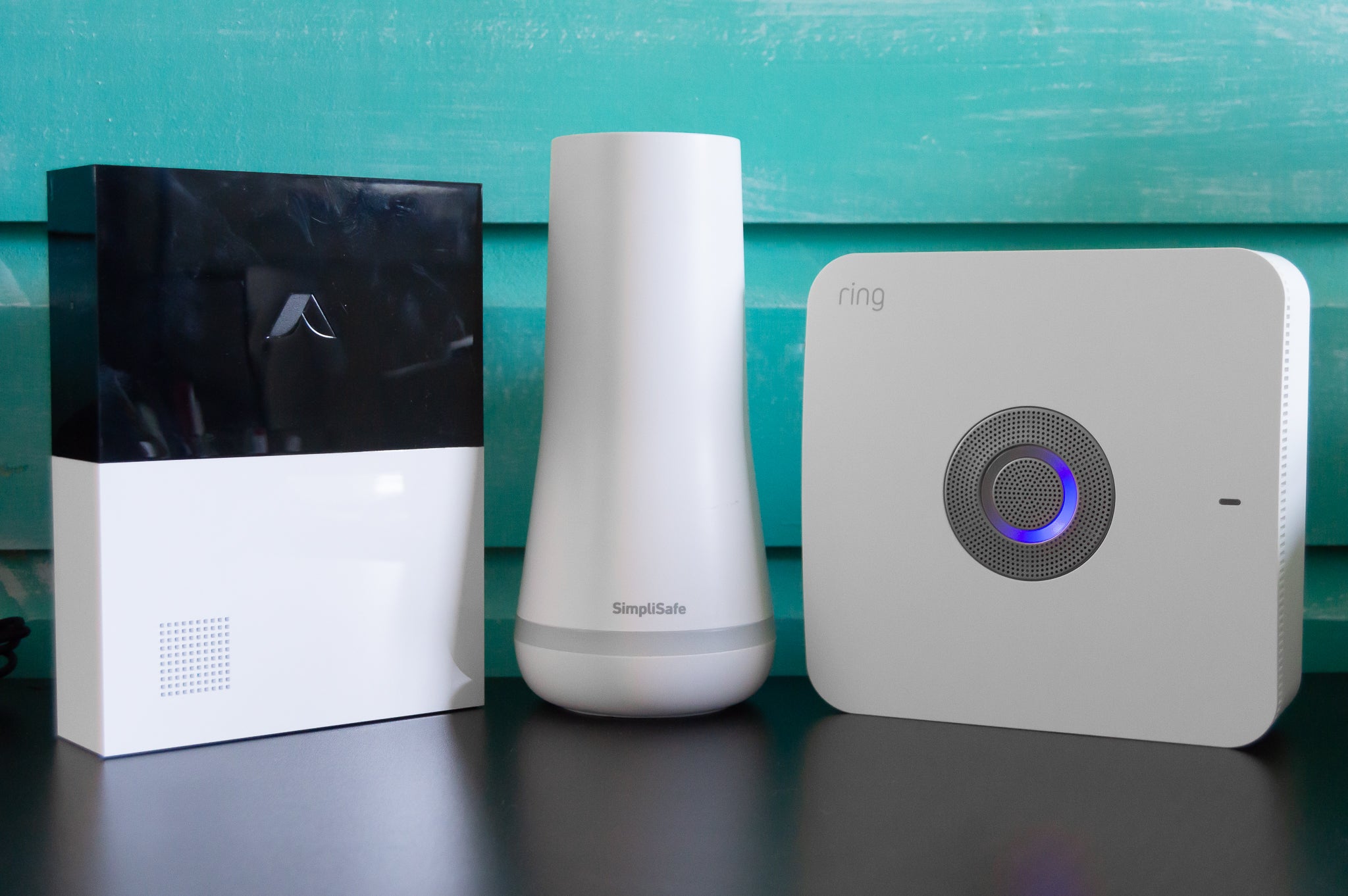Home>Home Security and Surveillance>Which CCTV Is Best For Home?
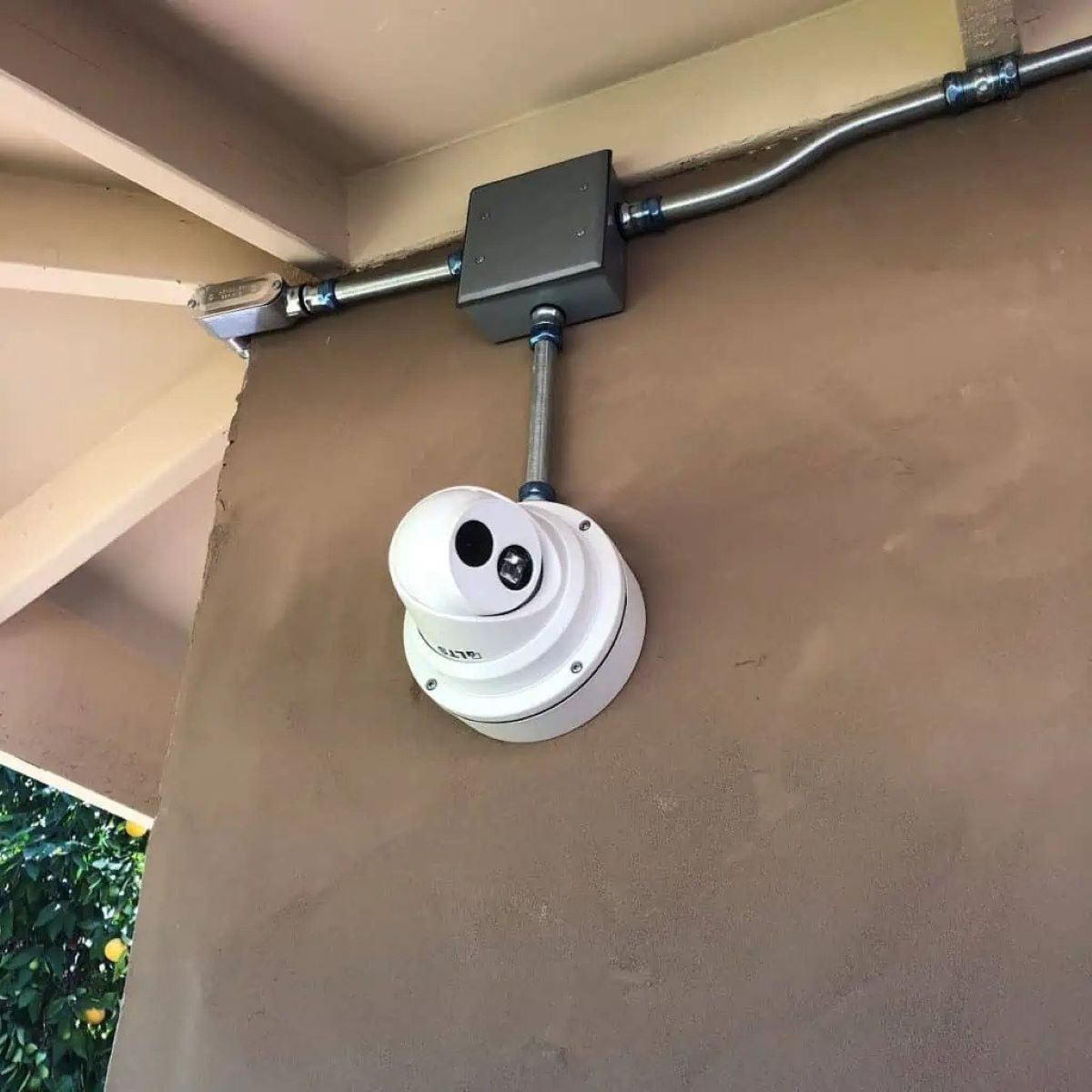

Home Security and Surveillance
Which CCTV Is Best For Home?
Modified: March 6, 2024
Looking for the best CCTV for your home security and surveillance needs? Discover our top recommendations and make an informed decision to protect your loved ones and property.
(Many of the links in this article redirect to a specific reviewed product. Your purchase of these products through affiliate links helps to generate commission for Storables.com, at no extra cost. Learn more)
Introduction
Welcome to the world of home security and surveillance. In today’s fast-paced and interconnected society, ensuring the safety of our homes, loved ones, and valuable belongings has become a top priority. Fortunately, advancements in technology have provided us with a wide range of options when it comes to choosing the best CCTV (closed-circuit television) system for our homes.
A CCTV system acts as an extra set of eyes on your property, allowing you to monitor and record activities in and around your home. Whether you’re concerned about burglaries, vandalism, or simply want to keep an eye on your children or pets, investing in a high-quality CCTV system is a wise choice.
However, with so many different types and brands of CCTV systems available in the market, choosing the best one for your specific needs can be a daunting task. That’s why we’ve prepared this comprehensive guide to help you navigate through the options and make an informed decision.
In the following sections, we will discuss the key factors you should consider before choosing a CCTV system for your home. We’ll explore the differences between wired and wireless systems, delve into resolution and image quality, explore night vision capabilities, field of view, storage options, remote viewing and mobile accessibility, and consider cost factors. We’ll also highlight some popular CCTV brands that have a proven track record in providing reliable and top-notch surveillance systems.
By the end of this guide, you’ll have a clear understanding of the features and considerations that are important in selecting the best CCTV system for your home. So, let’s dive in and empower you to make the right choice for your home security needs!
Key Takeaways:
- Choosing the best CCTV system for your home involves considering factors like location, budget, image quality, and night vision. It’s important to prioritize reliability and quality for enhanced security.
- Popular CCTV brands like Hikvision, Axis Communications, and Dahua Technology offer reliable and top-notch surveillance systems. Researching these brands can guide you toward a trusted CCTV system for your home security needs.
Factors to Consider Before Choosing a CCTV for Home
When it comes to selecting a CCTV system for your home, there are several key factors to consider. These factors will help you narrow down your options and find the system that best meets your needs and budget. Let’s take a look at them:
- Location: Assess the areas of your home that require surveillance. Determine whether you need cameras indoors, outdoors, or both. Consider the coverage area and the specific angles you want to monitor.
- Purpose: Identify the main purpose of installing a CCTV system. Do you want to deter intruders, monitor the activities of your children or pets, or have visual evidence in case of incidents?
- Budget: Set a budget for your CCTV system. It’s important to strike a balance between quality and affordability. Remember to consider the long-term costs, including maintenance and potential upgrades.
- Image Quality: Opt for a CCTV system with high-resolution cameras to capture clear and detailed footage. A higher resolution ensures that you can easily identify faces, objects, or license plates, if needed.
- Camera Type: Choose between analog, IP, or HD cameras. Analog cameras are cost-effective but offer lower image quality. IP and HD cameras provide higher resolution and advanced features, but come at a higher price.
- Wireless vs. Wired: Decide whether you want a wireless or wired CCTV system. Wireless systems offer easy installation and flexibility, while wired systems provide a more stable and reliable connection.
- Night Vision: If you need surveillance during nighttime or in low-light conditions, select a CCTV system with infrared (IR) or low-light technology to ensure clear and detailed footage in the dark.
- Remote Viewing: Check if the CCTV system allows remote viewing through a mobile app or web browser. Remote access enables you to monitor your home from anywhere in the world, providing peace of mind when you’re away.
- Storage: Consider the storage options and capacity for storing recorded footage. Look for systems that offer local storage through DVRs or NVRs, or those that provide cloud storage for added convenience and accessibility.
- User-Friendly Interface: Ensure that the CCTV system has a user-friendly interface for easy navigation and configuration. Intuitive software and mobile apps make it simpler to manage and control your surveillance system.
By taking these factors into account, you’ll be able to narrow down your options and find the CCTV system that meets your specific requirements. It’s important to thoroughly research and compare different brands and models to make an informed decision. Now that we’ve covered the key factors to consider, let’s discuss the differences between wired and wireless CCTV systems in the next section.
Wired vs Wireless CCTV Systems
When choosing a CCTV system for your home, one of the primary considerations is whether to opt for a wired or wireless setup. Both options have their advantages and disadvantages, so it’s important to understand their differences before making a decision.
Wired CCTV Systems:
- Wired systems, as the name suggests, require physical connections between the cameras, the recording device (DVR/NVR), and the power source. This setup ensures a stable and uninterrupted connection.
- Wired systems are reliable and less susceptible to interference. They are not affected by issues like the range of wireless signals, signal loss, or interference from other devices.
- Installation of wired systems can be more complex and time-consuming. It may involve drilling holes to run cables through walls or ceilings, which can be inconvenient and may require professional assistance.
- Wired CCTV systems are typically more cost-effective in terms of equipment price, as they do not require wireless transmission technology.
- These systems often offer higher image quality and more advanced features, as they can support higher resolution cameras and have dedicated video transmission lines.
- Wired systems are generally more secure, as the video transmission is confined to the physical cables. This reduces the risk of hackers intercepting the video feed.
Wireless CCTV Systems:
- Wireless systems utilize Wi-Fi or other wireless technologies to transmit video signals from the cameras to the recording device.
- Wireless systems provide greater flexibility and ease of installation, as they don’t require physical connections between cameras and the recording device. This allows for more flexible camera placement and simplified setup.
- Since they rely on wireless signals, these systems can be susceptible to interference from other devices, signal range limitations, and signal loss due to obstacles or environmental factors.
- Wireless systems are generally more expensive than their wired counterparts, as they require additional equipment, such as wireless transmitters and receivers.
- They offer the convenience of remote access, allowing you to view live footage and recorded videos from your smartphone or computer anywhere with an internet connection.
- Wireless systems may experience occasional latency or delays in video transmission, which can result in a loss of real-time monitoring capabilities.
Ultimately, the choice between a wired and wireless CCTV system depends on your specific requirements and preferences. If you prioritize stability, reliability, and higher image quality, a wired system may be the best option for you. On the other hand, if flexibility, ease of installation, and remote access are more important, a wireless system may better suit your needs.
Next, let’s explore the importance of resolution and image quality when selecting a CCTV system for your home.
Resolution and Image Quality
When it comes to surveillance cameras, resolution and image quality play a crucial role in capturing clear and detailed footage. These factors determine the level of detail you can see in recorded videos, making it essential to invest in a CCTV system with high-resolution cameras.
Resolution:
Resolution refers to the number of pixels a camera can capture, usually represented by the width and height of the image. Higher resolution means more pixels, resulting in sharper and more detailed footage. The most common resolutions for CCTV cameras include:
- Standard Definition (SD): Typically 720×480 pixels, SD cameras are suitable for basic surveillance needs but offer lower image quality compared to higher resolutions.
- High Definition (HD): HD cameras offer improved image quality with resolutions of 720p (1280×720 pixels) or 1080p (1920×1080 pixels). These cameras are ideal for capturing clear details like facial features and license plates.
- 4K Ultra HD: As the highest resolution currently available for CCTV cameras, 4K Ultra HD (3840×2160 pixels) provides incredibly sharp and detailed footage. This resolution is recommended for applications where maximum clarity is required, such as monitoring large areas or identifying fine details.
Image Quality:
In addition to resolution, other factors contribute to the overall image quality of a CCTV camera:
- Sensor Type: The quality of the camera’s image sensor greatly affects its ability to capture clear and accurate footage. Look for cameras with high-quality image sensors for optimal performance.
- Day and Night Performance: Some cameras incorporate special features like infrared (IR) LEDs or low-light sensors to enhance performance in low-light conditions or during nighttime. This ensures that the cameras can capture clear footage even when lighting conditions are not optimal.
- Dynamic Range: Cameras with a wide dynamic range (WDR) can handle difficult lighting situations, such as high contrast or backlighting. This feature allows the camera to capture both bright and dark areas of the scene simultaneously, resulting in more balanced and detailed footage.
- Image Enhancement Technology: Look for cameras with features like digital noise reduction (DNR) and image stabilization, which can improve the overall quality and clarity of recorded videos.
When selecting a CCTV system, consider the resolution that best suits your specific needs. For general surveillance purposes, an HD camera is usually sufficient. However, if you require more detailed images or need to monitor large areas, consider investing in a system with 4K Ultra HD cameras.
Keep in mind that the image quality is not solely determined by the camera, but also by factors such as lighting conditions, camera placement, and lens quality. Therefore, it’s important to ensure proper lighting and optimal camera positioning for the best possible image quality.
Now that we’ve explored the importance of resolution and image quality, let’s move on to discussing the night vision capabilities of CCTV systems.
Night Vision Capability
When it comes to home security, having a CCTV system with reliable night vision capability is crucial. Many incidents and intrusions occur under the cover of darkness, making it essential to have cameras that can capture clear footage even in low-light or completely dark environments.
How Night Vision Works:
Night vision in CCTV systems is achieved through the use of infrared (IR) technology. IR LEDs, located around the camera lens, emit infrared light that is invisible to the human eye but can be detected by the camera’s image sensor. This allows the camera to illuminate the scene, even in complete darkness, and capture black-and-white footage.
Factors to Consider:
When evaluating the night vision capabilities of a CCTV system, consider the following factors:
- Range: Check the effective range of the night vision feature. The range varies between different CCTV models, with some cameras offering a range of up to 100 feet or more. Consider your specific surveillance needs and determine how far you need the night vision to reach.
- Infrared Illuminators: Look for cameras with high-quality infrared illuminators. These are the IR LEDs responsible for emitting infrared light. Cameras with a larger number of IR illuminators, positioned strategically around the lens, tend to provide better night vision performance.
- Image Clarity: Evaluate the image clarity in low-light conditions. Some cameras have advanced features like automatic gain control (AGC) and digital noise reduction (DNR) to enhance the clarity of night vision footage.
- Smart IR: Consider cameras with a smart IR feature, which adjusts the intensity of the infrared illumination based on the distance of the subject. This helps to prevent overexposure of nearby objects or washout of distant objects, ensuring balanced and clear footage.
- Infrared Cut Filter (ICR): Cameras with an ICR feature automatically switch between color and black-and-white modes, depending on lighting conditions. This ensures optimal image quality in both day and night situations, as the filter blocks out unwanted infrared light during the day.
Having a CCTV system with reliable night vision capability ensures continuous surveillance and peace of mind, even during the darkest hours. It enables clear visibility and identification of potential threats or intruders in low-light conditions, offering valuable evidence in case of any incidents.
Now that we’ve covered the importance of night vision capability, let’s move on to discussing the field of view and its significance in selecting a CCTV system for your home.
Read more: How To Secure Home CCTV
Field of View
The field of view (FOV) is a crucial consideration when choosing a CCTV system for your home. It refers to the area that a camera can capture and monitor. The FOV determines how much of your property will be covered and the level of detail captured in the surveillance footage.
Determining the Field of View:
When evaluating the FOV of a CCTV camera, two key factors come into play:
- Focal Length: The focal length of a camera lens determines the angle of view and how much of a scene can be captured. Cameras with a shorter focal length have a wider FOV, covering a larger area but potentially sacrificing details. Cameras with a longer focal length have a narrower FOV, focusing on specific areas with higher detail.
- Camera Positioning: The placement of the camera significantly affects the FOV. The angle and height at which the camera is mounted determine the coverage area and the level of detail captured.
Considerations for Field of View:
When considering the FOV of a CCTV camera, keep the following factors in mind:
- Area Coverage: Assess the areas of your property that you want to monitor. Consider the size and layout of the area, and determine the number and positioning of cameras needed to achieve the desired coverage.
- Distance and Detail: Evaluate the distance at which you need to capture clear details. If you’re monitoring a wide outdoor area, a wider FOV may be necessary. For narrow pathways or entrances, a narrower FOV that zooms in on specific areas may be more suitable.
- Critical Points: Identify specific areas that require focused surveillance, such as entrances, driveways, or high-value objects. Ensure that the cameras are positioned to capture these critical points effectively.
- Camera Placement: Plan the placement of cameras to maximize coverage and minimize blind spots. A combination of cameras with different FOVs can provide comprehensive coverage of your property.
Having a properly planned and positioned CCTV system that offers an appropriate field of view ensures effective monitoring and adequate coverage of your property. It allows you to capture important events and activities, ensuring the safety and security of your home and loved ones.
Next, let’s delve into the different storage options available for CCTV systems, as well as the importance of remote viewing and mobile accessibility.
When choosing a CCTV for your home, look for one with high resolution, night vision, motion detection, and remote viewing capabilities. It’s also important to consider the storage options and ease of installation.
Storage Options
Choosing the right storage options for your CCTV system is essential to ensure that you can store and access recorded footage effectively. The storage capacity and method you choose will depend on factors such as the size of your property, the number of cameras, and the desired retention period for the recorded videos.
Types of Storage:
There are primarily two types of storage options available for CCTV systems:
- Local Storage: Local storage involves using physical storage devices like Digital Video Recorders (DVRs) or Network Video Recorders (NVRs) to store the recorded footage. These devices are connected directly to the cameras and provide on-site storage. The storage capacity depends on the size of the hard drive installed in the DVR or NVR. Some systems also allow for external USB drives to be connected for additional storage capacity.
- Cloud Storage: Cloud storage involves uploading the recorded footage to a remote server via an internet connection. This enables you to access the footage from anywhere with an internet connection. Cloud storage provides the advantage of remote access, off-site backup, and scalability, as you can easily expand your storage capacity as needed.
Factors to Consider:
When choosing a storage option for your CCTV system, consider the following factors:
- Storage Capacity: Estimate the amount of footage you need to store based on the number of cameras, video resolution, frame rate, and the desired retention period. Ensure that the storage option you choose offers sufficient capacity to meet your requirements.
- Reliability: Determine the reliability and durability of the storage solution. Look for high-quality hard drives or reputable cloud storage providers that offer secure and reliable services.
- Accessibility: Assess how easily you can access the recorded footage. Local storage allows for quick and direct access to the on-site storage devices, whereas cloud storage provides the convenience of accessing the footage remotely via the internet.
- Cost: Consider the cost implications of different storage options. Local storage typically involves a one-time investment in hardware, while cloud storage often requires a recurring subscription fee based on the storage capacity needed.
- Redundancy: Redundancy refers to having duplicate copies of the recorded footage to prevent data loss. Consider systems that offer redundancy options, such as RAID configurations for local storage or automatic backups for cloud storage.
Ultimately, the choice between local storage and cloud storage depends on your specific needs and preferences. Local storage is often preferred for its reliability and immediate access, while cloud storage offers the advantage of remote viewing, off-site backup, and scalability.
Take the time to assess your storage requirements and consider the pros and cons of each option. This will ensure that you select the most suitable storage solution for your CCTV system.
Next, we’ll discuss the importance of remote viewing and mobile accessibility in CCTV systems.
Remote Viewing and Mobile Accessibility
In today’s connected world, the ability to remotely access and monitor your CCTV system is a significant advantage. Remote viewing and mobile accessibility allow you to keep an eye on your home and property from anywhere, at any time, using your smartphone, tablet, or computer.
Benefits of Remote Viewing:
Here are some key benefits of having remote viewing and mobile accessibility for your CCTV system:
- Convenience: Remote viewing eliminates the need to be physically present at your property to monitor the CCTV cameras. You can check live feeds, review recorded footage, and receive notifications of any suspicious activities or security events, all from the convenience of your mobile device.
- Real-Time Monitoring: With remote access, you can monitor your property in real-time, no matter where you are. This gives you peace of mind and the ability to respond quickly to any potential security concerns, even if you’re away on vacation or at work.
- Alerts and Notifications: Many CCTV systems offer motion detection and alert features, notifying you via email, push notifications, or SMS when any unusual activity is detected. You can then view the live footage or review the recorded video to assess the situation and take appropriate action if necessary.
- Remote Playback and Search: Mobile accessibility allows you to access the recorded footage stored on your DVR, NVR, or cloud storage remotely. This enables you to review past events, search for specific incidents, and share video evidence with law enforcement or insurance agencies if needed.
- Flexibility: Remote viewing gives you the flexibility to monitor multiple locations simultaneously. Whether you have multiple properties, a vacation home, or a business, you can easily switch between camera feeds and stay informed about all your premises.
Mobile App Features:
When selecting a CCTV system, consider the features offered by the mobile app for remote viewing:
- Live View: Ensure that the mobile app provides a seamless live viewing experience, allowing you to access camera feeds in real-time without any lag or delays.
- Playback and Search: Look for a mobile app that allows you to easily navigate through recorded footage, search for specific events or timeframes, and adjust playback speed.
- Camera Control: Some mobile apps offer camera control functions, such as pan, tilt, and zoom (PTZ), allowing you to remotely adjust the camera’s view and focus on specific areas of interest.
- Push Notifications: Make sure the mobile app supports push notifications, so you receive instant alerts and notifications regarding security events or motion detection.
- Two-Way Audio: If two-way audio is important to you, choose a mobile app that enables communication through the CCTV system’s audio-enabled cameras.
Having the ability to remotely access and monitor your CCTV system provides an added layer of convenience, security, and peace of mind. Ensure that the CCTV system you choose offers mobile accessibility and a user-friendly mobile app with the desired features, allowing you to stay connected and in control of your home security wherever you are.
Now that we’ve discussed the importance of remote viewing and mobile accessibility, let’s dive into the cost considerations you should keep in mind when selecting a CCTV system for your home.
Cost Considerations
When selecting a CCTV system for your home, it’s essential to consider the costs involved. While the safety and security of your property and loved ones are priceless, it’s important to find a system that fits within your budget. Here are some key cost considerations to keep in mind:
- Equipment Cost: The upfront cost of the CCTV system includes the cameras, recording devices (DVR or NVR), cables, power supplies, and any additional accessories. Consider the number of cameras needed and the quality of equipment required to meet your surveillance needs.
- Installation Cost: If you’re not comfortable with DIY installation, hiring a professional installer may be necessary. Take installation costs into account when planning your budget.
- Maintenance and Upkeep: Consider the ongoing costs of maintenance, servicing, and potential repairs. Ensure that the CCTV system you choose is reliable and has good customer support to minimize any potential future expenses.
- Storage Costs: If you opt for cloud storage, factor in the monthly or annual subscription fee for the storage service. Compare options and consider the storage capacity you require and the costs associated with it.
- Internet Bandwidth: If you’re using a remote access feature that relies on an internet connection, consider the impact on your monthly internet service bill. Higher resolution cameras and constant streaming can use significant bandwidth.
- Power Consumption: CCTV cameras and recording devices consume power. Consider the long-term impact on your electricity bill, especially if you plan to install numerous cameras or use continuous recording.
- Future Expandability: If you anticipate expanding your surveillance system in the future, consider the cost implications of adding more cameras or upgrading equipment to accommodate the expansion.
- Warranty and Support: Look for CCTV systems that offer a reasonable warranty period and reliable technical support. Long-term warranty coverage can save you from incurring additional costs in case of equipment failure.
While it’s important to find a CCTV system that fits your budget, remember that quality and reliability should not be compromised. Choosing a reputable brand and investing in high-quality equipment will ensure better performance and longer lifespan, providing greater value for your money in the long run.
Do thorough research, compare prices, and consider the long-term costs before making a purchase decision. It’s also worth seeking recommendations and reading reviews from other users to gauge the overall cost-effectiveness of different CCTV systems.
Now that we’ve covered the key cost considerations, let’s explore some popular CCTV brands that have a proven track record in providing reliable and top-notch surveillance systems.
Read more: How To Make A CCTV Camera At Home
Popular CCTV Brands for Home
When it comes to selecting a CCTV system for your home, choosing a reputable brand is crucial for reliability, quality, and customer support. While there are many brands available in the market, here are some popular CCTV brands that have established a strong reputation for providing reliable and top-notch surveillance systems:
- Hikvision: As one of the largest and most trusted CCTV brands globally, Hikvision offers a wide range of high-quality cameras, DVRs, NVRs, and accessories. Their products are known for their exceptional image quality, advanced features, and reliability.
- Axis Communications: Axis Communications is a renowned industry leader known for their innovative network cameras and video management software. They offer a comprehensive range of high-performance cameras, including dome, bullet, and PTZ cameras, with excellent image quality and advanced analytics capabilities.
- Dahua Technology: Dahua Technology is another reputable brand that provides a diverse range of CCTV solutions. Their products are known for their reliability, advanced features, and competitive pricing. Dahua offers a wide selection of cameras, recorders, and video management software.
- Honeywell: Honeywell is a well-established brand in the security industry, offering a variety of CCTV solutions for residential and commercial applications. Honeywell’s cameras and recorders are known for their durability, ease of use, and integration with other security systems.
- Lorex: Lorex specializes in providing innovative and user-friendly CCTV systems for home use. They offer a range of wired and wireless cameras, as well as DVRs and NVRs with advanced features such as remote viewing, motion detection, and mobile app integration.
- Reolink: Reolink is known for its affordable yet reliable CCTV systems. They offer a variety of cameras, including wireless and battery-powered options, with features like night vision, motion detection, and remote access. Reolink’s products are popular for their easy installation and user-friendly interfaces.
These brands have earned a solid reputation for their quality products, cutting-edge technology, and reliable customer support. However, it’s important to note that the suitability of a specific brand and model depends on your unique requirements and budget.
Before making a selection, research the specifications, features, and customer reviews of different CCTV systems from these brands. It’s also beneficial to consult with security professionals or seek recommendations from trusted sources who have firsthand experience with these brands.
Remember, investing in a reputable brand ensures that you’re getting a high-quality CCTV system that will effectively meet your home security needs.
Now that we’ve explored popular CCTV brands, let’s conclude our guide and summarize the key points.
Conclusion
Choosing the best CCTV system for your home is a crucial step in ensuring the safety and security of your property and loved ones. With a wide range of options available, it’s important to consider several factors before making a decision.
We started by discussing the key factors you should consider, such as location, purpose, budget, image quality, camera type, wired vs. wireless systems, night vision capability, remote viewing, and storage options. These factors will help you narrow down your choices and find the CCTV system that best suits your needs.
We explored the differences between wired and wireless systems, considering their advantages and disadvantages. This knowledge will help you decide which setup is more suitable for your home security requirements.
Resolution and image quality were highlighted as essential aspects to capture clear and detailed footage. We discussed the importance of choosing cameras with higher resolution and image enhancement technologies for optimal performance.
Night vision capability was emphasized as a crucial feature, enabling surveillance in low-light or dark conditions. By selecting cameras with infrared technology, you can ensure clear and detailed footage even in the absence of ambient lighting.
The field of view plays a vital role in determining the coverage area and level of detail captured by the cameras. We discussed the importance of assessing the areas you want to monitor and choosing cameras with appropriate focal lengths and strategic placement to maximize coverage.
Consideration was given to the storage options available, including local storage through DVRs or NVRs, as well as cloud storage. Assessing your storage needs, reliability, accessibility, and cost implications will assist you in making an informed decision.
We emphasized the convenience and advantages of remote viewing and mobile accessibility. The ability to monitor your CCTV system remotely, receive real-time alerts, and access live and recorded footage from your mobile device brings a heightened sense of security and convenience.
Cost considerations were also discussed, reminding you to evaluate equipment costs, installation expenses, maintenance, storage costs, internet bandwidth requirements, power consumption, and future expandability to ensure a cost-effective solution that meets your budget.
Lastly, we mentioned popular CCTV brands known for their reliability, quality, and customer support, including Hikvision, Axis Communications, Dahua Technology, Honeywell, Lorex, and Reolink. Researching these brands and comparing their products can guide you toward a reputable and trusted CCTV system.
By considering all these factors, you’ll be equipped to make an informed decision and select the best CCTV system for your home security needs. Prioritize reliability, quality, and performance to ensure the safety and peace of mind that you and your loved ones deserve.
Now it’s time to take action and invest in a CCTV system that will bring you enhanced security, control, and peace of mind for years to come.
Frequently Asked Questions about Which CCTV Is Best For Home?
Was this page helpful?
At Storables.com, we guarantee accurate and reliable information. Our content, validated by Expert Board Contributors, is crafted following stringent Editorial Policies. We're committed to providing you with well-researched, expert-backed insights for all your informational needs.
